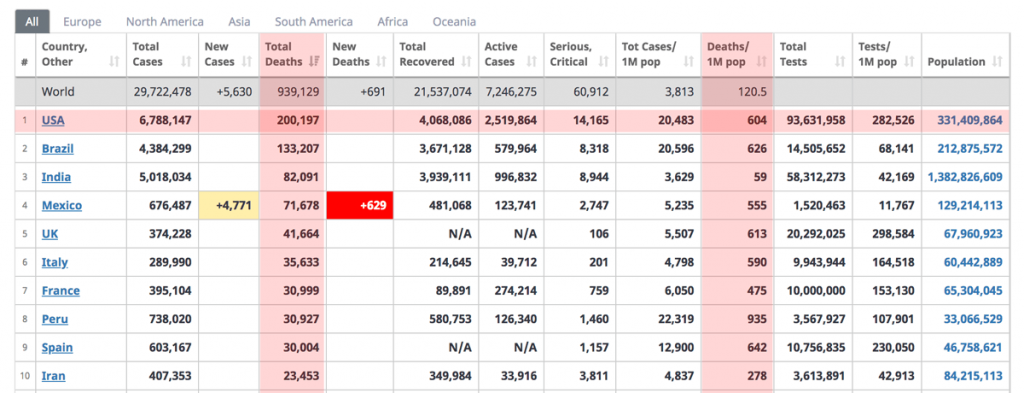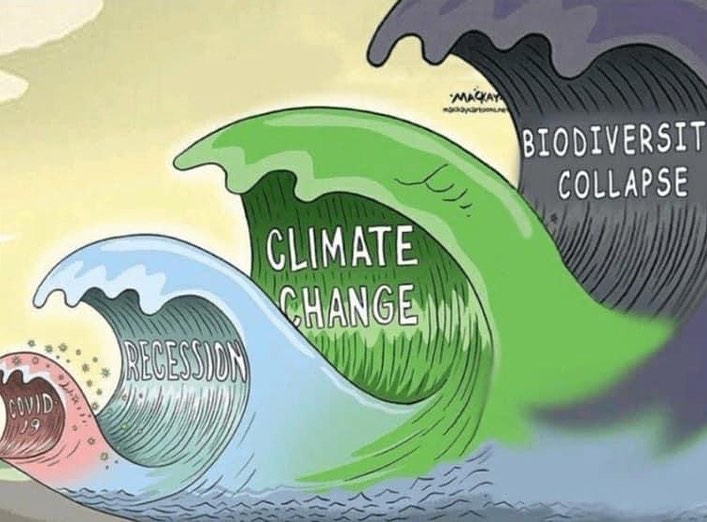Original article from: Propublica
As another grim milestone approaches, here are the lessons officials ignored and what the country needs to do to prevent further tragedy.
As an editor, I’ve long had mixed feelings about the journalistic tradition of marking particular chronological or numerical milestones. No one wanted to avoid the “Sept. 11: One Year Later” package — and I was eager to do it given the six previous years I’d spent directing global coverage of al-Qaida — but the annual stories seemed far more forced by Sept. 11, 2005.
More recently, we’ve seen stories like “World War I: A Century Later” or “The 75th Anniversary of the End of World War II.” They’re often illuminating, but they don’t have deeper meaning than stories that might have been published on the 99th or 74th anniversary of those events.
LEFT VIEWPOINTS
On September 15th, the United States passed 200, 000 COVID-19 deaths.
- The United States has the highest coronavirus death count in the world. Part of that is due to its large population of 331 million people. But you can also see that our death per 1 million in the population is higher than in many other countries.

- In 2018, Donald Trump disbanded the Pandemic Response Team. Trump said, “I don’t like to have thousands of people around when you don’t need them.” Less than two years later, the coronavirus pandemic struck.
- As a nation, it’s imperative that we become proactive at addressing issues that may lead to catastrophic destruction or death. When 9/11 occurred, the shocking images left no doubt that our anti-terror systems were inadequate. We addressed those issues because the threat was obvious and indelible. Invisible dangers like a pandemic or climate change are harder to visualize, but the damage they can cause is far more severe. It would take 67 “September 11ths” to have 200,000 deaths. The economic damage caused by this pandemic is trillions of dollars greater than 9/11. And the death and economic damage from this pandemic are far less than what climate change is likely to cause.


